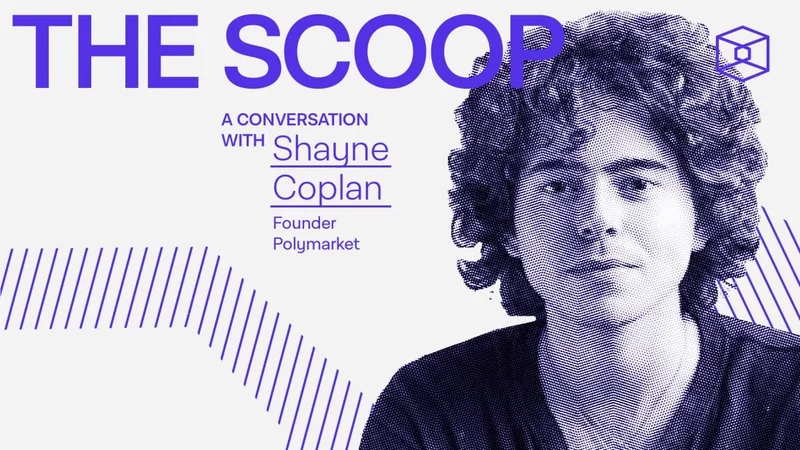Generated Title: Polymarket's Billion-Dollar Bet: Are Prediction Markets the Future, or Just a Gen Z Fad?
Alright, let's talk about Polymarket. Shayne Coplan, the 27-year-old founder, is now a billionaire, thanks to an $8 billion valuation after a $2 billion investment from Intercontinental Exchange (ICE), the New York Stock Exchange's parent company. That's a big number. But what does it actually mean?
The Allure of "Truth" (and Profit)
Coplan claims Polymarket offers a more objective view than traditional media, a "global truth machine" powered by the people. The idea is simple: users bet on the likelihood of real-world events, from elections to celebrity divorces, and the platform aggregates those bets to predict outcomes. It's Hayek's decentralized knowledge meets the internet age.
But let's be real: it's still gambling. Aleksandar Tomic, an economist at Boston College, rightly points out that these markets are "just another place to make a bet." It's dressed up in fancy language about "demystifying real events," but at its core, it's about predicting the future for profit. And that's where things get interesting.
Polymarket isn't the first prediction market. Intrade, a similar platform, predicted the 2008 and 2012 US elections with impressive accuracy, before shutting down in 2013. So, what makes Polymarket different? The answer seems to be Gen Z. The platform has successfully tapped into a generation comfortable with online gambling, cryptocurrency, and a general distrust of traditional institutions.
Regulatory Minefield and Political Winds
The road hasn't been smooth. In 2022, the CFTC fined Polymarket $1.4 million for operating without a license and blocked U.S. users. Coplan pivoted, expanding internationally and improving the user experience. Then came 2024. Polymarket correctly predicted Trump's victory, leading to an FBI raid on Coplan's apartment, which the company called "political retaliation."

Here's where the narrative gets a little too convenient. With Trump back in the White House, the investigations were dropped, and Polymarket acquired a CFTC-licensed company (QCEX) for $112 million, allowing it to legally resume U.S. operations. The ICE investment followed shortly after.
The timing is… well, it's hard to ignore. Was the regulatory pressure truly politically motivated, or was Polymarket simply operating in a gray area and benefiting from a shift in the political landscape? Details on the specific reasons for the dropped investigations remain scarce, but the impact is undeniable.
Is This Just a Fad?
Polymarket has partnered with TKO Group, the parent company of UFC and Zuffa Boxing, to integrate prediction market technology into live events. This is framed as a way to "unlock a new dimension of fan engagement." They'll even have a "Fan Prediction Scoreboard" during UFC broadcasts, visualizing how fans are betting on each fight. TKO And Polymarket Announce First-Of-Its-Kind Sports Partnership
I've looked at hundreds of these partnership announcements, and this one feels… different. It's not just about slapping a logo on a screen. It's about actively integrating gambling (or, "prediction") into the core viewing experience. The UFC deal aims to boost fan engagement technology, according to Dana White, but how much of that engagement is driven by genuine interest in the sport versus the thrill of betting? And what are the long-term implications of normalizing gambling in this way, especially for younger viewers?
A Glimpse of Tomorrow?
The big question is whether Polymarket's success is sustainable. Can it continue to attract users and maintain its accuracy? Or will it fade away like Intrade, another casualty of the regulatory and technological landscape? Coplan aspires to be the next Mark Zuckerberg, but building a lasting company requires more than just catching a wave. It requires navigating complex regulations, building trust with users, and, perhaps most importantly, resisting the urge to "act first, apologize later." That last part is gonna be tough.
